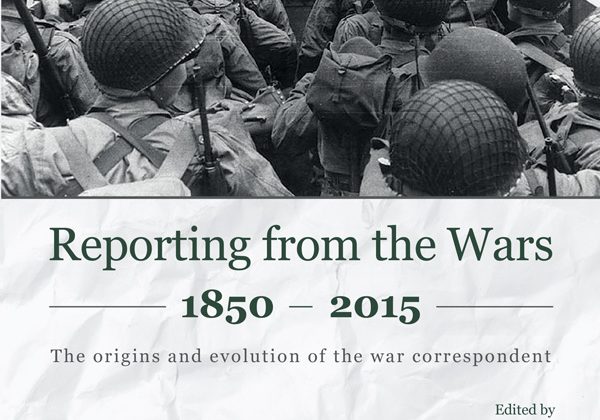The American publisher Vernon Press has published a new volume on the history of war journalism, entitled "Reporting from The Wars 1850-2015: The origins and evolution of the war correspondent", including a chapter of memoirs by the president of the Center for Strategic Alternatives Aleksandar Mitić on his reporting from Kosovo during the 1999 NATO bombings.
In the chapter entitled "Kosovo 1999: Stranded in a War of Hide-and-Seek", Mitić recalls his 78-day reporting for Agence France-Presse (AFP) from inside Kosovo, where he was the only correspondent to cover the entire 1999 bombings.
In his memoirs, Mitić recalls key events during the 1999 bombings, including how his reporting on the April 14 NATO blunder attack on a column of displaced Kosovo Albanians led Tony Blair and Bill Clinton to have an emergency call after which the former decided to send his spin master Alistair Campbell to lead the NATO PR operation in Brussels.
The book describes the author's adventures in Kosovo with Régis Debray, former aide to Che Guevara and leading French intellectual, who provoked a storm in France during the bombings after his Zola-like "Letter to the President of the Republic" published on the front page of "Le Monde". He also recalls surviving a sniper attack on a car ride with Ron Ben-Yishai, one of the most famous Israeli war journalists.
Mitić paints a vivid picture of the atmosphere during the bombings, as well as of his reporting, which challenged the basic NATO PR strategy about the way the bombings were supposed to be reported - with zero NATO victims and zero visible victims on the ground.
The book reads: "As such, there was no doubt that, in the wars to come, NATO and the US Army in particular would learn some lessons from the Kosovo war. One of them - already widely spread in Afghanistan in 2001 -- would be a strong focus on embedded journalism and control of messaging. The second would be the rise of strategic communication. It is in the aftermath of the Kosovo war, and of course particularly after 9/11, that we saw the prominence of strategic communication.
But it was not only the Pentagon and NATO which learned lessons. Following humiliations during the Kosovo war, both China and Russia realized that not only do they had to change the way they handled communication during conflicts, but also that they had to enter the global strategic communication battle (...)"
The book, edited by Barry Turner (University of Lincoln), Danier Barredo (Universidad del Rosario, Colombia), and Steven James Grattan (Universidad del Rosario, Colombia) is available through Vernon Press @ https://vernonpress.com/book/137




